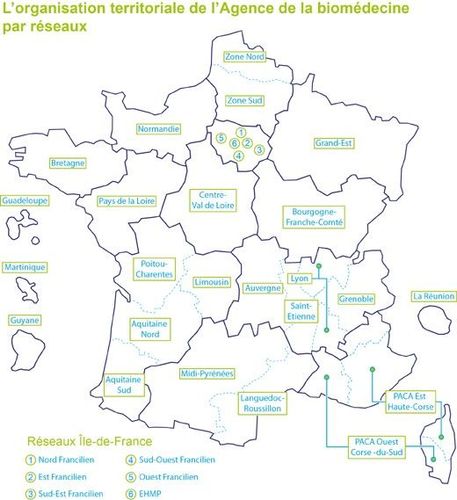The agency in the different regions
Published on 20 November 2024
The Agence de la biomédecine relies on a territorial network so that it can work as closely as possible with medical teams and patients. This approach seeks to ensure that its activities are effectively coordinated and to adjust its actions in line with specific local needs, in conjunction with regional stakeholders.
A regional organization serving patients
The Agence de la biomédecine has branches in each region to ensure that it has an optimal local presence. Regional services play a crucial role in providing direct support to health facilities and effectively regulating collections. Their work includes training and raising the awareness of health professionals, coordinating the persons involved in the transplant process and publicizing the agency’s actions at the regional level.
"Through our regional presence, we affirm our commitment to equitable access to transplants for all patients, regardless of where they live. Our strategy is clear: to work as closely as possible with the medical teams to ensure that transplants are distributed uniformly across the country." - Marine Jeantet, Chief Executive Officer

Enhanced regional coordination
The 2022-2026 ministerial plans introduced a regional coordination structure. The agency works closely with the Regional Health Agencies (ARSs) in carrying out projects tailored to the specific needs of each region. Employees have been appointed by the ARSs to work specifically on the three ministerial plans. Steering committees have been established and meetings are attended by the agency’s teams, healthcare professionals, patient associations, representatives of the French Ministry of Health and the ARSs. These committees facilitate dialogue between all stakeholders and consider specific issues.
"The ministerial plans have strengthened our regional activities by enabling us to respond to the specific challenges faced by each region. By virtue of this regional coordination, we ensure that our work is consistent nationally while tailoring our actions to specific local needs, thereby improving care for patients." - Prof. Michel Tsimaratos, Deputy Chief Executive Officer responsible for medical and scientific policy